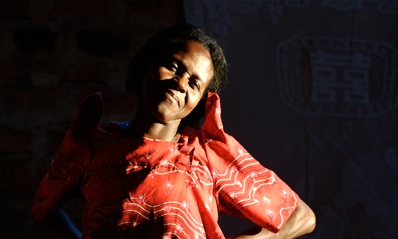
Here's the thing. We can talk about gender and its relationship to climate, the role of women in the battle against climate change, and the effects of climate change on gender all day everyday. That dialogue is happening around this subject is an acceptible reality. Climate change is (rather should always be) a critical topic of discourse. What we can't do is talk at the people most affected. We can't simply talk around them, study them, think about them, and convene conferences in their name.
More importantly, the affected must be allowed to voice their opinions, their concerns, their realities, and their solutions. Climate change doesn't just severely affect nameless, mass groupings of peoples. It touches, destroys and transforms the lives of real people, who are simply separated by geography and economic status.
Here at C4C, we feel that your personal stories matter, that they are important to consider as we all gear up to find solutions that will allow us to live happier lives and survive an ever changing environment.
Everyone should tell their stories, if for nothing else than for that one chance that someone will hear it and relate to our lives, our struggles, and our ambitions. Tell your stories so that you can emerge from under the weight of being a number, a statistic, an unidentified face in the crowd.

Today, we decided to let Africa speak for herself. We interviewed Milly Kugonza. She is a mother, wife, preacher, and an elected official in a small village of Kikuube in Uganda. The village has no access to electricity, or running water - two of the categories we discuss weekly. But Milly's story isn't simply about highlighting a woman in an African village, her story is the start of connecting the many threads that make up the global human tapestry we live under.
Milly shares how her village deals with climate change. She talks about the challenge of accessing water during dry seasons and the creative ways in which her community has devised to harvest rain water. These are challeges and solutions that would really apply anywhere on the continent.
How does Milly's experience resonate with you? Could you use some of the solutions her village uses in your life or in your community? Climate change might impact us in various ways, but one thing that unites us all is the desire to make the best of out of life.



